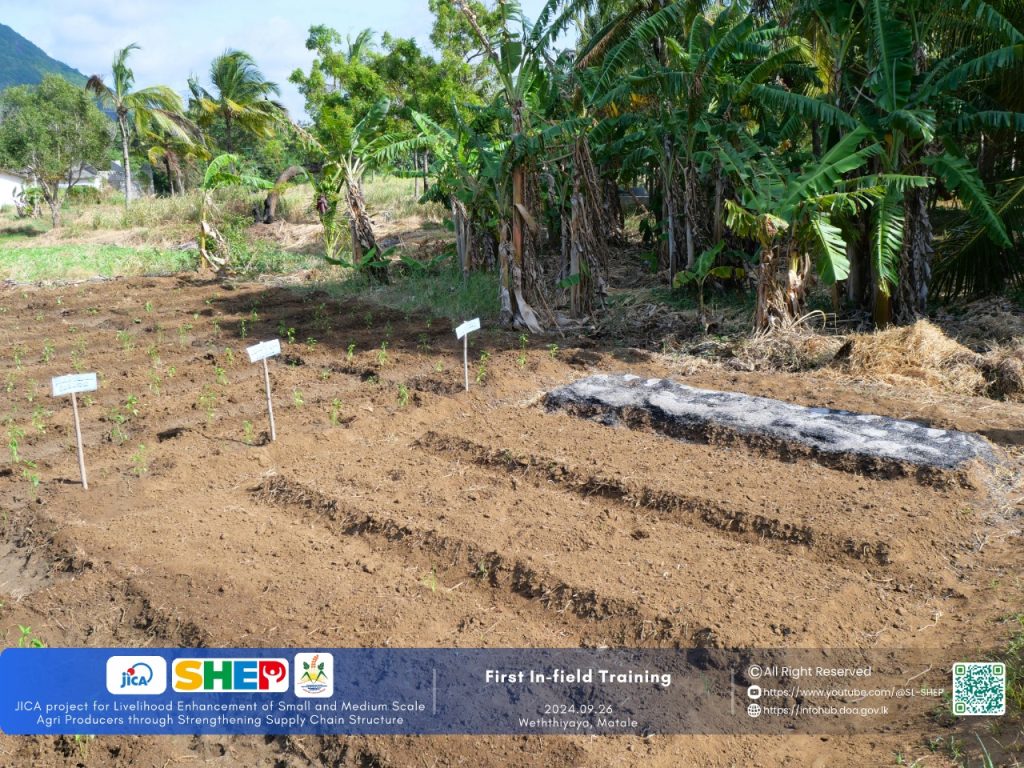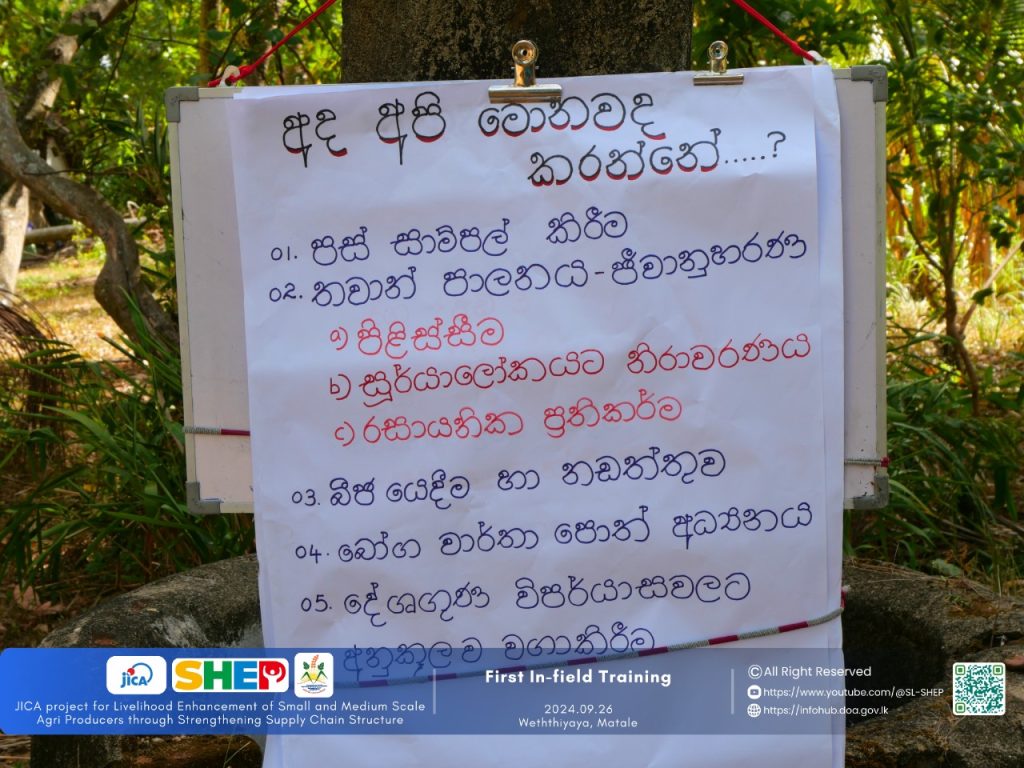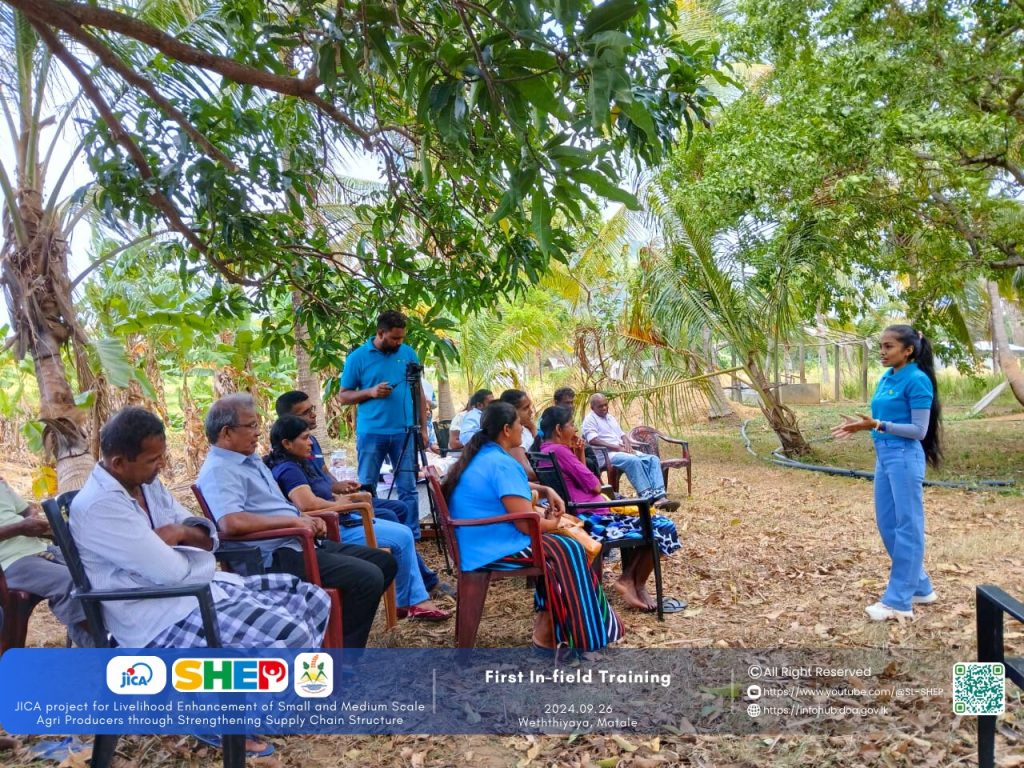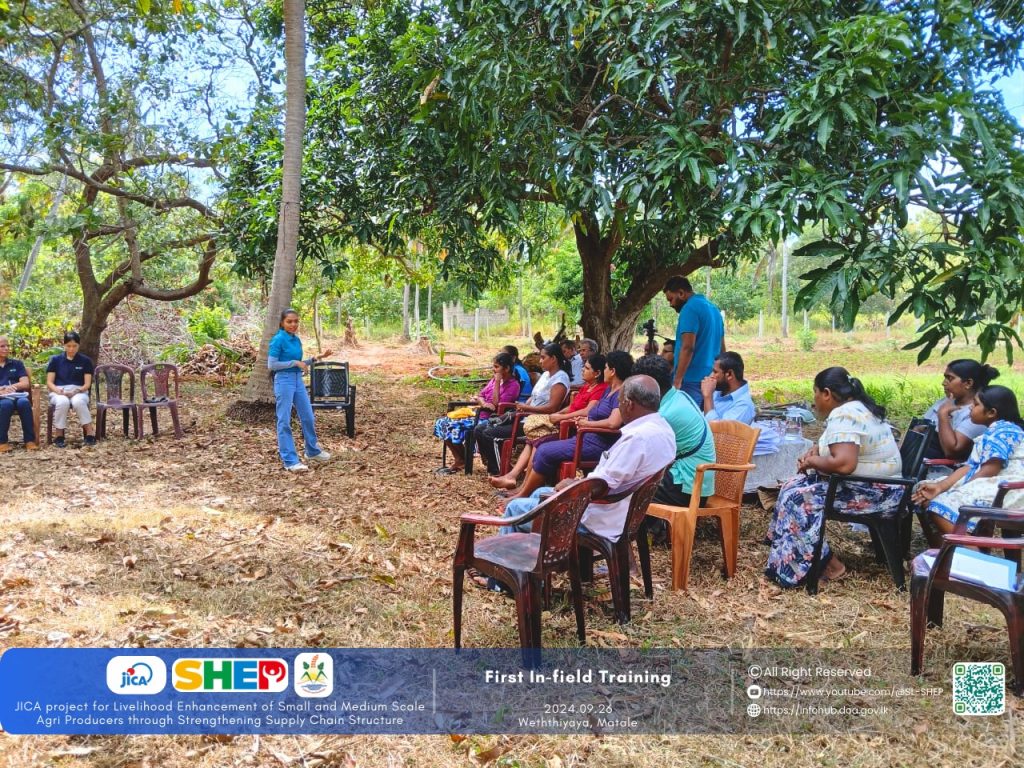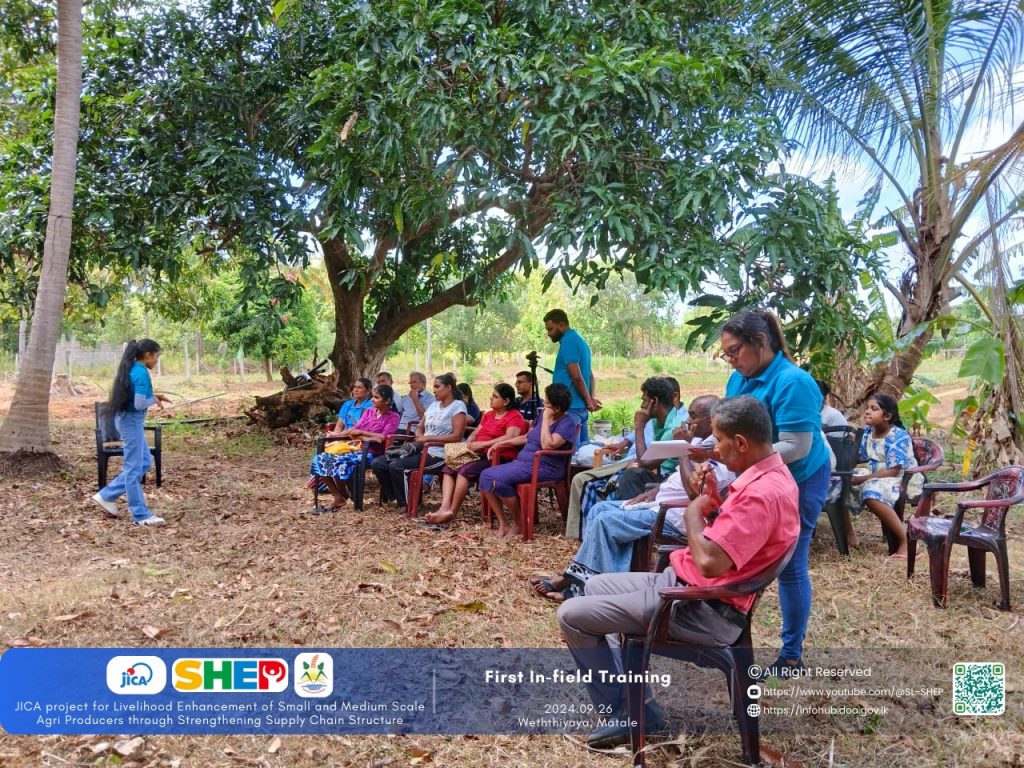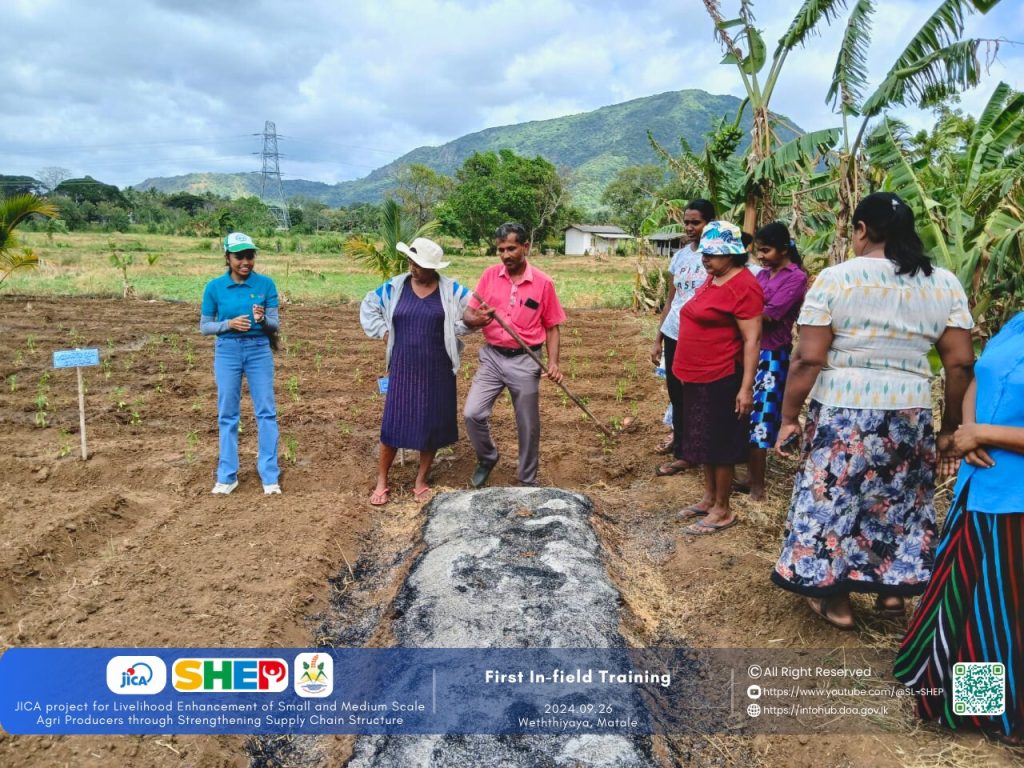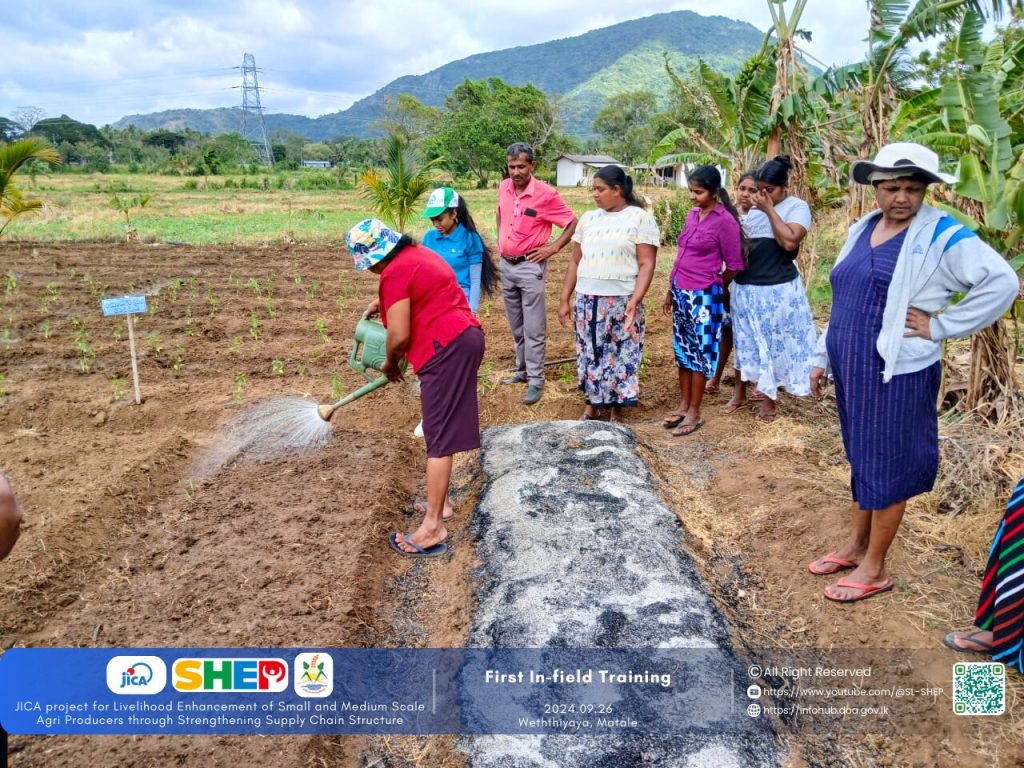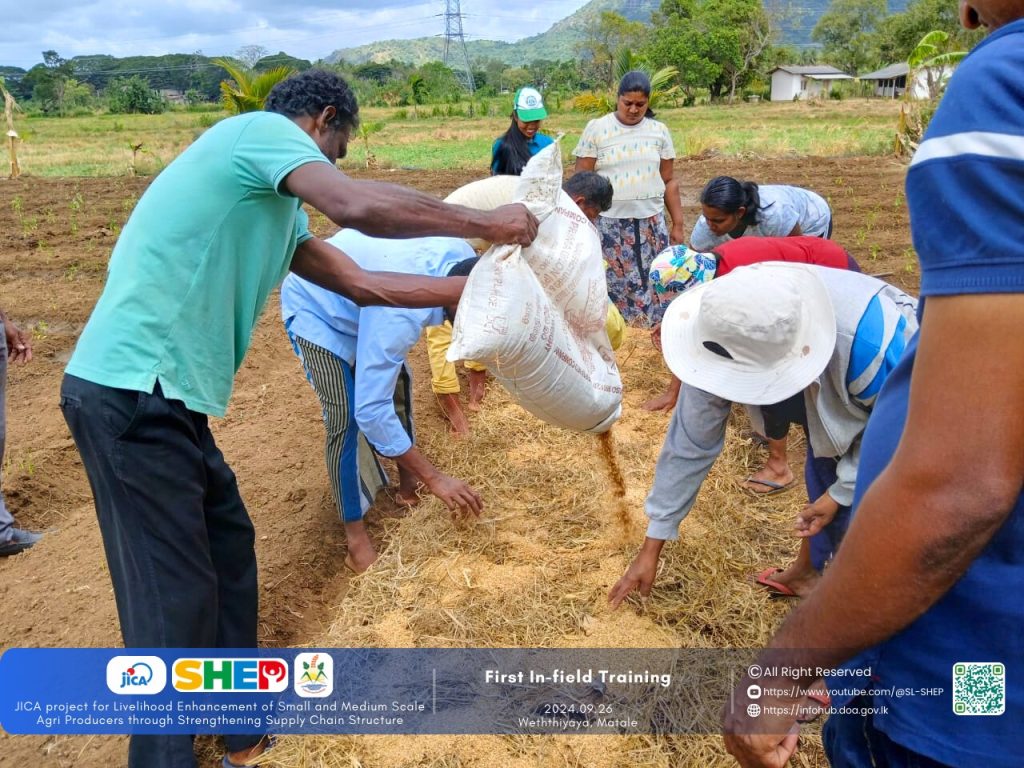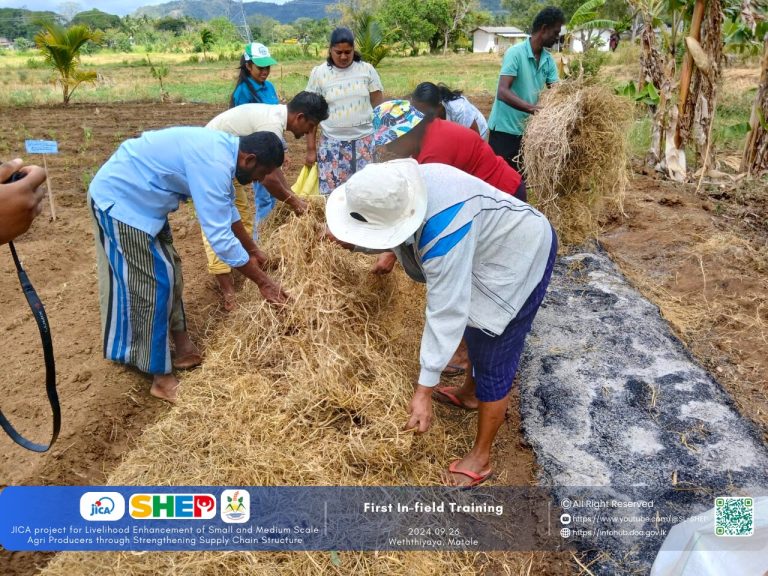The fourth step of the SHEP (Smallholder Horticulture Empowerment and Promotion) approach helps farmers gain practical skills to grow selected horticultural crops. These skills are taught through In-field training based on farmers’ needs, allowing them to apply new methods on their farms right away.
As part of the plan from the third step, the first training session was held for all 25 SHEP farmer groups. This session helped farmers learn about soil testing, nursery management, and crop record-keeping. They also practiced these skills with guidance from Agricultural Instructors and Technical Assistant Officers.
During the training, farmers learned how to prepare soil samples to test for nutrients like Nitrogen (N), Phosphorus (P), and Potassium (K). They were shown how to collect soil samples, bag them correctly, and label them properly.
In nursery management, farmers were trained in preparing nursery beds, sterilizing soil (using heat, chemicals, or solar methods), adding fertilizers and organic manure, sowing seeds, mulching, and controlling weeds and diseases. These practical lessons prepared them to use modern farming techniques effectively.
Farmers also learned the importance of keeping records of all farming activities, including fertilizers and chemicals used, from planting to harvest. Keeping records helps them manage their crops better, save money, increase income, and track production levels.
This training program guides farmers toward sustainable and efficient farming. By using the right techniques, they can improve their harvests, adopt eco-friendly practices, and raise their standard of living. It also supports long-term agricultural growth, benefiting both farmers and their communities.
